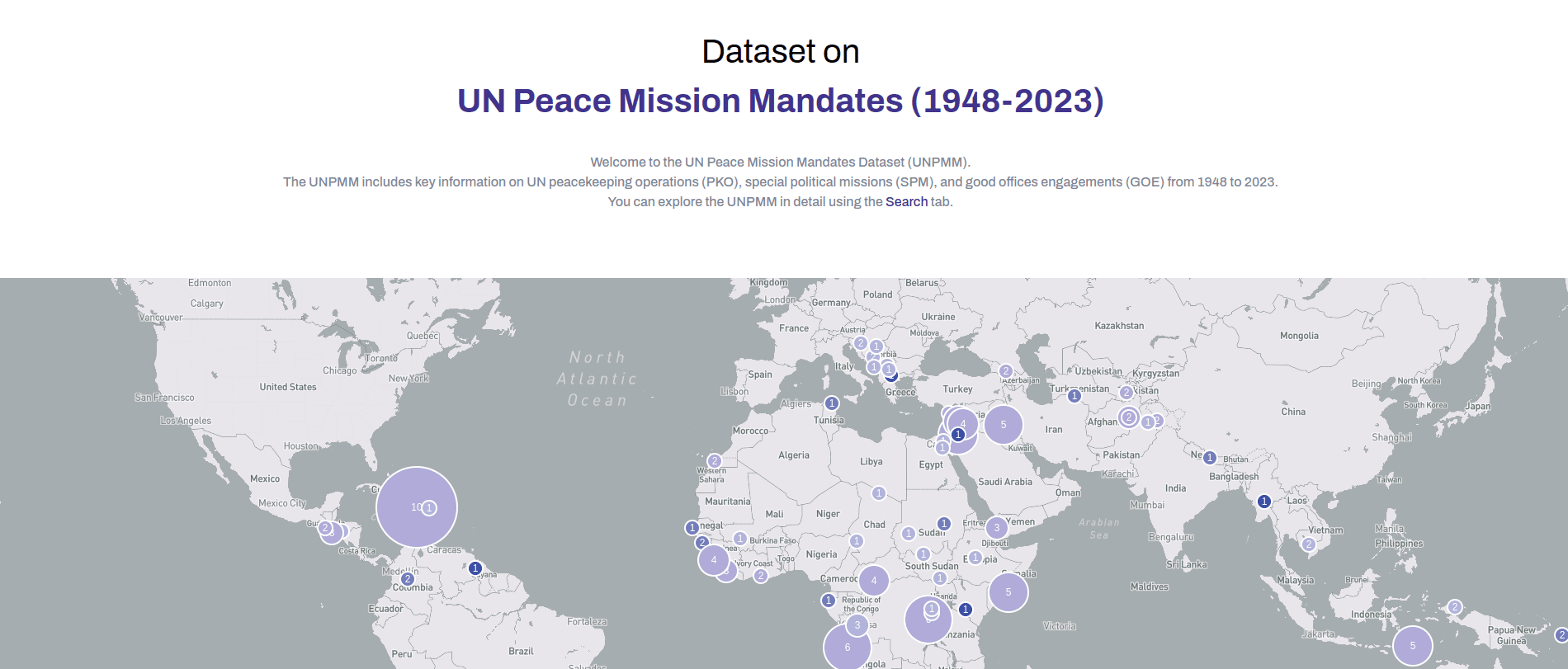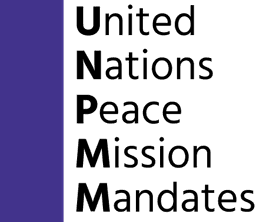What is the UNPMM?
The UNPMM is a dataset of all UN peace missions between 1948 and 2024. It includes peacekeeping operations (PKO), special political missions (SPM), and good offices engagements (GOE). It codes the evolving mandate tasks of all UN peace missions and classifies them according to whether they are minimalist, moderate, or maximalist. The dataset contains UCDP/PRIO conflict IDs and can be used with UCDP-compatible datasets. Users can explore the UNPMM data using our search engine or download the dataset. The codebook describing the coding approach can also be downloaded. Prior versions of the dataset and codebook along with a user-interfaceable dataset developed for the period 1991-2020 can be accessed in the archive folder.To cite the UNPMM, please refer to: Sara Hellmüller, Margaux Pinaud, Chiara Lanfranchi (2025), United Nations Peace Mission Mandates Dataset, Version 2.2, Geneva: Geneva Graduate Institute and Zürich: ETH Zürich, www.peacemissions.info.
Downloadable data
Dataset | Codebook |
|---|---|
Download the spreadsheet, V2.2 | Download the codebook, V2.2 |


What data does the UNPMM include?
The UNPMM codes the mandate tasks of all UN peace missions between 1948 and 2024. Our coding approach involved two steps. First, each mission mandate was coded based on the language in the UN Security Council resolution mandating the mission. If a mission was authorized by the General Assembly or through an exchange of letters between the Secretary-General and the Security Council, we coded based on these documents. When a mission did not have a written mandate (mostly GOE), we relied on other UN sources. Second, we validated the coding by analyzing additional UN material as well as secondary literature. If these sources mentioned further tasks, we coded these only if we could locate them in the original UN source consulted.The UNPMM identifies a total of 42 mandate tasks. We distinguish three categories of mandate tasks:Minimalist tasks: Tasks in this minimalist sub-category reflect an approach that contents itself with absence of armed conflict and focuses on bringing about the conditions for negative peace.Moderate tasks: Tasks in this moderate sub-category reflect an approach that aims at no renewed armed conflict and decent governance without specifying the governance model.Maximalist tasks: Tasks in this maximalist sub-category reflect an approach that seeks to address root causes and that aims at building the conditions for positive (and often liberal) peace.These terms were first suggested by Charles T. Call and Elizabeth M. Cousens in 2007 to measure successful peacebuilding outcomes. We apply them to mandate tasks of UN peace missions. Based on the share of different task types, we then code overall missions according to whether they are minimalist, moderate, or maximalist.




